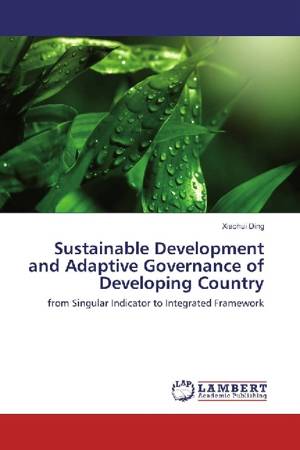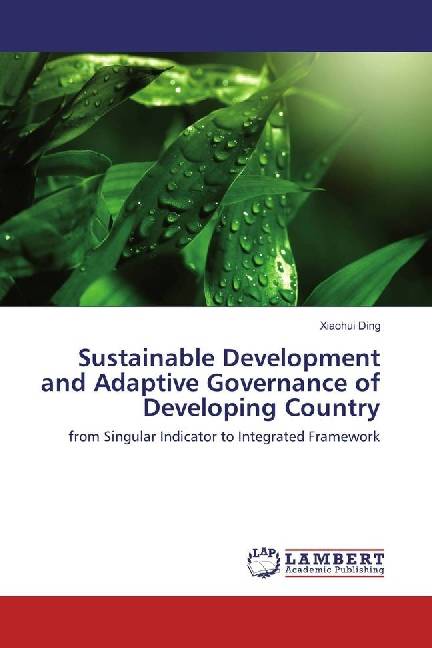
- Afhalen na 1 uur in een winkel met voorraad
- Gratis thuislevering in België vanaf € 30
- Ruim aanbod met 7 miljoen producten
- Afhalen na 1 uur in een winkel met voorraad
- Gratis thuislevering in België vanaf € 30
- Ruim aanbod met 7 miljoen producten
Zoeken
Sustainable Development and Adaptive Governance of Developing Country
from Singular Indicator to Integrated Framework
Xiaohui Ding
Paperback | Engels
€ 73,95
+ 147 punten
Omschrijving
Most of the world's population growth for the foreseeable future will occur in urban areas in developing countries. However, such processes are neither smooth nor sustainable, but increasingly plagued by various problems in health, quality of life, environmental quality, social cohesion and stability. Given the complex nature of sustainable development (SD) at regional level - featured by multi temporal & spatial levels and various stakeholders, methodology taken for dealing with this issue should be a pluralistic approach - involving multiple actors from local communities and being applicable at different geographical scales. Since the focal points of SD at regional level, in the context of developing countries, are equally focused on poverty and equity, as well as environmental issues, the inner logic of the methodology for diverting these regions towards SD should cover three fundamental issues - to which "direction", by what "means", and through what "process" - that should such regional development transformation to be initiated.
Specificaties
Betrokkenen
- Auteur(s):
- Uitgeverij:
Inhoud
- Aantal bladzijden:
- 288
- Taal:
- Engels
Eigenschappen
- Productcode (EAN):
- 9783659947285
- Uitvoering:
- Paperback
- Afmetingen:
- 150 mm x 220 mm

Alleen bij Standaard Boekhandel
+ 147 punten op je klantenkaart van Standaard Boekhandel
Beoordelingen
We publiceren alleen reviews die voldoen aan de voorwaarden voor reviews. Bekijk onze voorwaarden voor reviews.











